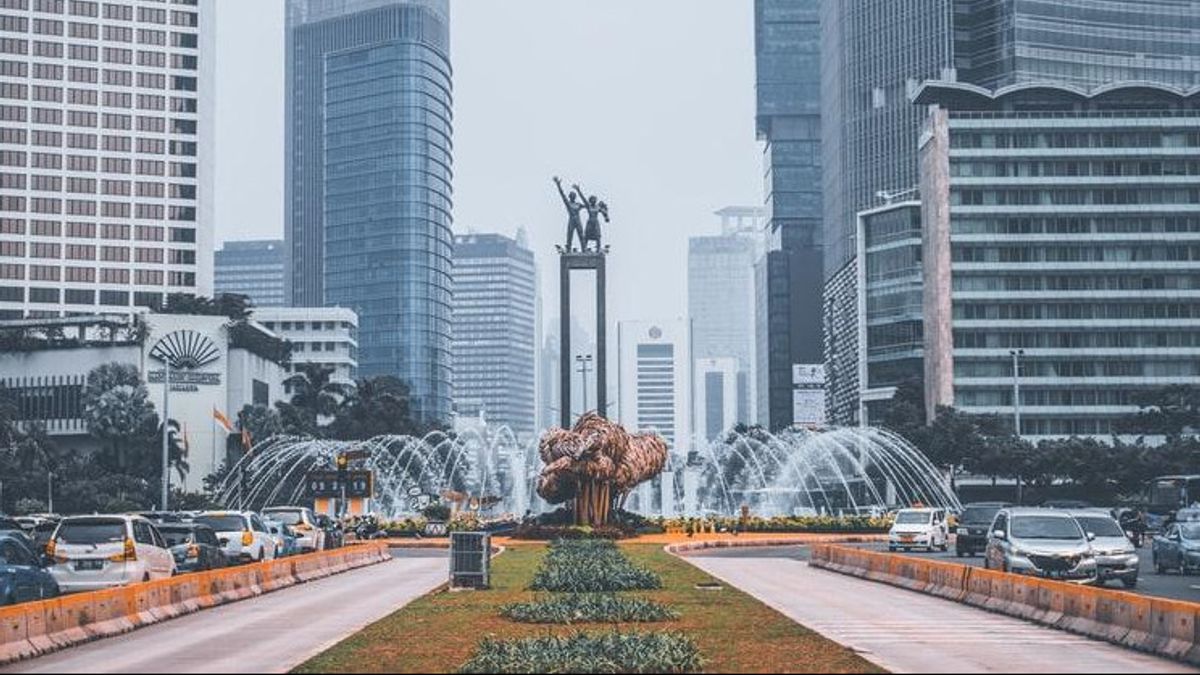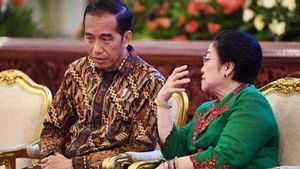JAKARTA - Every June 22, the people of the capital city celebrate the anniversary (HUT) of DKI Jakarta. This date has been designated as the 1956 DKI Jakarta Anniversary. There is a polemic behind this decision.
The decision on June 22 was made by the Mayor of Jakarta for the period 1953-1960, Sudiro. At that time, Sudiro felt that there should be a warning for the capital city.
The anniversary of Jakarta was then determined based on the Decree of the Provisional City Representative Council of Djakarta Raja No. 6/d/k/1956. The basis for the determination is the research of Prof. Sukanto, described in the book From Djakarta to Djajakarta.
But Prof. Sukanto, who conducted the research, admitted that the exact date of birth of the City of Jakarta could not be known. Quoting Jakarta's Anniversary by Heru Erwantoro, Sukanto explained that Fatahillah captured Sunda Kelapa at the end of February 1527.
A few days after the seizure came the Portuguese fleet under the leadership of Francisco De Sa who wanted to build a fort at Sunda Kelapa. In mid-March 1527, Fatahillah's troops attacked the Portuguese and defeated them.
With the success of capturing Sunda Kelapa and defeating the Portuguese, Fatahillah perpetuated his victory by changing the name Sunda Kelapa. At that time Sunda Kelapa was changed to Jayakarta, which means a final victory or a complete victory, or a complete victory.

According to Sukanto, Fatahillah succeeded in defeating the Portuguese fleet a few months after March, namely June 22, 1527. “Also considering what has been described above, since the first prey fell in June (the month of harvest or the month after harvest), we think the The possibility is not small, that the name Djajakarta was given on the first day of the first prey, namely in June, the 22nd, 1527. The day we can't be sure is w" Soekanto, 1954:60.
Analysis of Prof. Sukanto was widely discussed until finally in early 1956, the results of the investigation were submitted to the Regional House of Representatives (DPRD) Kotapradja Djakarta Raya. After the Plenary Session, it was decided that June 22 would be commemorated as Jakarta's birthday and would continue to be celebrated every year.
On the other hand, Prof. Sukanto's research results were denied by Prof. Husein Djajadiningrat. Husein questioned Sukanto's methods of calculating dates.
Husein then concluded that the change of name from Sunda Kelapa to Jayakarta occurred on Maulud 12 Rabiul Awal on 933 H or Monday 17 December 1526. However, Sudiro still chose June 22 as the anniversary of Jakarta.
The polemic on the determination of June 22 continued to emerge after that. In 1980, Prof. Dr. Slamet Muljana questioned the determination of June 22 as the anniversary of Jakarta. He discusses the history of the development of the City of Jakarta in his book From Holotan to Jakarta to arrive at this conclusion.
Keep on celebratingDespite the polemic on the exact date for Jakarta's anniversary, the public continues to celebrate lively. In fact, every year there is an event that is very identical to the Jakarta Anniversary celebration, namely the Jakarta Fair (PRJ) or also known as the Jakarta Fair.
The first Jakarta Fair was held during the reign of Governor Ali Sadikin in 1968. However, since the COVID-19 pandemic, there has been no more PRJ frenzy.
For this year's Jakarta Anniversary, the theme is 'Jakarta Rises.' According to the Governor of DKI Jakarta Province, Anies Baswedan, the theme raised messages of enthusiasm, optimism, and hopes for a better Jakarta revival than before the pandemic.
"Last year, we were in a period of testing and relatively new challenges, because this is the first time we are dealing with an epidemic, so last year we took the theme of toughness, we look back on that last year all activities were gentle, both economic, social and cultural. It is illustrated that the curve is decreasing," Anies said as quoted by Antara.
*Read other information about HISTORY or read other interesting articles from Putri Ainur Islam.
TODAY'S HISTORY MoreThe English, Chinese, Japanese, Arabic, and French versions are automatically generated by the AI. So there may still be inaccuracies in translating, please always see Indonesian as our main language. (system supported by DigitalSiber.id)












